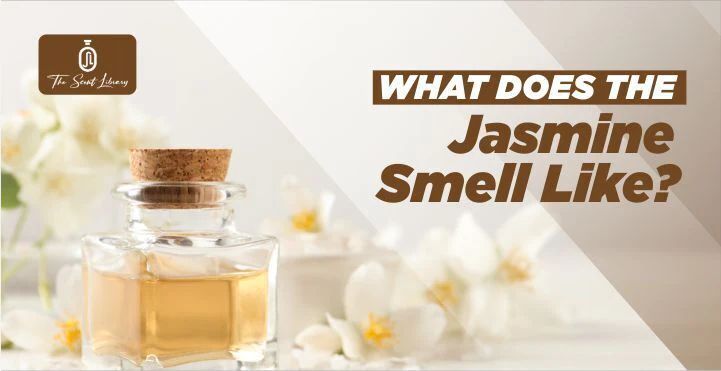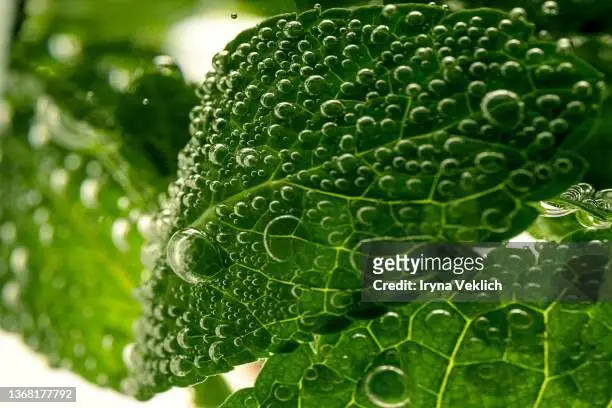What Is Musk Oil Made From?
What is Musk Oil?
Musk oil is an aromatic oil extracted from the musk pods or sacs of the male musk deer (https://mybestproducts.blog/oriental-perfumes/what-is-musk-oil/). The musk deer is native to Asia, and can be found in countries like China, Russia, India, and Mongolia. Musk oil has been highly valued for centuries in the perfume industry for its rich, warm, sweet and sensual aroma.
The main chemical components of musk oil that contribute to its unique scent are muscone, muscopyridine, and muskene. Muscone makes up about 20-50% of the oil and has a very intense and tenacious odor (https://www.collinsdictionary.com/us/dictionary/english/musk). Musk oil is described as having deep, lingering balsamic, sweet, aromatic notes that act as an excellent fixative in perfumes. It helps blend all the notes in a fragrance and provides depth and subtle intensity.
History and Origins
Musk oil originated in ancient times from the musk deer, which is native to Asia. Historically, musk was highly valued as a perfume ingredient and medicinal product across many cultures. According to the Encyclopedia Britannica, musk was already used in ancient Egypt, India, and China. It gained popularity in the Middle Ages in the Middle East and Europe.
In ancient times, musk oil was obtained from the musk deer through a cruel process where the musk pod was removed from the live deer’s abdominal region. The dried secretions from the musk pod were used to produce musk oil. Musk oil was prized for its alluring scent and believed to have aphrodisiac properties. It was also used medicinally to treat various ailments. The high value of musk made it an important trade item along ancient routes like the Silk Road.
Today, musk oils are typically synthetic or plant-based. However, animal musk extraction still occurs in some parts of Asia, raising ethical concerns. The origins of musk oil lie in the traditional use of musk deer secretions, which have inspired modern musk perfumes and fragrances.
Musk Deer
Musk deer are small, forest-dwelling deer native to Asia. They are found in the forests and mountains of the Himalayas, Siberia, and East Asia [1]. Musk deer have large ears, short legs, and no antlers. They stand around 2 feet tall at the shoulder and weigh between 15-17 kg. Their habitat is mainly forests and alpine meadows between 2,700-4,300 meters above sea level [2].
Male musk deer produce a strong-smelling secretion known as musk from a scent gland located between their naval and genitals. The musk is used to mark territory and attract females. Musk has been highly valued in traditional Chinese medicine and perfumery for centuries. To obtain musk, the scent glands are removed from captured or killed male musk deer [3]. This had led to the endangerment of musk deer populations due to poaching.
Chemical Composition
The key chemical compounds that give musk its distinctive scent are macrocyclic ketones. The main compound is muscone, which makes up about 30-55% of musk.[1] Muscone contains a 15-membered ring with a ketone group that provides musk’s characteristic odor.[2] Other important macrocyclic ketones in musk include ethylene brassylate, exaltolide, and civetone.[3]
In addition to macrocyclic ketones, musk contains other volatile organic compounds like pyridine, aldehydes, fatty acids, steroids, cholesterol derivatives, and amino acids. However, it’s the unique 15-membered ring structure of muscone that produces the unmistakable musky fragrance.[1]
The chemical composition of musk can vary depending on the source, method of extraction, and geographical origin. But macrocyclic ketones like muscone remain the major active components providing musk’s rich, sensual scent.[2]
Overall, the complex mixture of compounds in musk oil results in its long-lasting, musky aroma that has been prized for thousands of years.
[1] https://www.ncbi.nlm.nih.gov/pmc/articles/PMC4705530/
[2] https://cmjournal.biomedcentral.com/articles/10.1186/s13020-021-00457-8
[3] https://www.sciencedirect.com/science/article/abs/pii/S0378874121010291
Types of Musk
There are several main types of musk oil that come from different sources and have distinct compositions (The Complete Guide to Different Types of Musk Oils):
White Musk
White musk has a clean, powdery, and light musky aroma. It is the most commonly used musk in fragrances today. White musk does not actually contain real musk or come from the musk deer. Rather, it is a synthetic aroma chemical called Galaxolide that replicates the smell of musk.
African Musk
African musk oil originates from the African continent. It has an earthy, dark, and heavy musk smell. The source of African musk oil is unknown, but it may contain some real natural musk. However, most modern African musk oils are synthetic recreations.
Black Musk
Black musk oils have a sweet, strong, and spicy musk scent. They often contain some real natural deer musk blended with synthetic musk aromas. The musk deer species Moschus moschiferus, native to Asia, produces black musk.
Oriental Musk
Also called Indian or red musk, oriental musk oil has a distinguished aroma said to smell like baby powder mixed with wood. It comes from the Himalayan musk deer and often blended with floral notes like rose and jasmine.
Musk Oil Production
Authentic musk oil is produced from the scent glands of male musk deer (Musk deer – Wikipedia). The deer secretes musk from a sac located between the genitals and navel to mark territory and attract mates. To obtain musk, the sac is cut open to extract the dried secretion. This process is fatal for the deer.
Musk pods are dried in the sun to harden the musk. The musk grains are then tinctured in alcohol or macerated in oil. The oil is filtered, with the musk scent remaining in the oil. This produces a thick, sticky, brownish oil with an intense musk aroma (Musk in perfume – A guide for perfumers).
Today, musk deer populations are endangered due to poaching for the musk pod. Most modern musk oil production uses synthetic musk compounds instead of authentic deer musk. However, some traditional small-batch musk oils may still use real deer musk in parts of Asia.
Uses and Applications
Musk oil has been highly valued for centuries in perfumery and traditional medicine.
In perfumery, musk oil acts as a fixative, allowing the scent of a fragrance to last longer. Even in tiny quantities, musk oil helps blend all the notes in a perfume harmoniously. Musk oil has been described as having a sweet, rich, and sensual aroma which makes it a base note in many famous perfumes. The musky scent also acts as an aphrodisiac. Some of the iconic perfumes that contain musk oil include Chanel No. 5, Angel by Thierry Mugler, and Muscs Koublai Khan by Serge Lutens 1.
In Ayurvedic and Unani medicine, musk oil has been used as a stimulant, antispasmodic, and anti-inflammatory agent. It has been used to treat neurological and mental conditions like epilepsy, hysteria, and psychosis. Musk has also been used to improve blood circulation and aid heart conditions. Recent studies have shown musk to have antioxidant, anti-aging, and neuroprotective effects 2.
Price and Availability
Musk oil is relatively expensive compared to other essential oils. This is due to the high cost and difficult process of obtaining real musk. According to Agarscentsbazaar, prices for pure natural musk oils start at around $35 for a 3ml bottle. On Amazon, prices range from $10 to $100+ depending on the size and quality of the musk oil. High quality musk oils derived from real musk deer secretion can cost hundreds of dollars for a small vial.
Due to the controversy around harvesting musk from endangered musk deer, many musk oils today are synthetic reproductions. These lab-created musk oil alternatives are more affordable, with prices starting as low as $5. However, the scent profile may not be as complex or long-lasting as real natural musk.
Those seeking authentic musk oil will have to search specialized perfume shops and pay premium prices. It can also be difficult to verify if musk oil is real or synthetic. Overall, musk oil is considered a luxury fragrance ingredient. The high cost and limited availability reflects the labor-intensive production process and scarcity of real musk from wild musk deer.
Alternatives to Musk Oil
Due to animal welfare and sustainability concerns, there has been growing interest in alternatives to natural musk oil. The main replacements are synthetic musk, plant-derived musk, and other animal-free musk alternatives.
Synthetic musk is the most common musk substitute used in perfumery and cosmetics. Molecules like galaxolide and tonalide mimic the scent of musk without using any animal products (Fargeot). While synthetic musk does not fully replicate the complexity of natural musk, technological advances have allowed synthetics to closely approach the warmth and smoothness of real musk.
In addition to synthetics, there are some plant-based options that provide musky notes. Ambrette seed oil from the hibiscus plant produces musk-like effects, as do aromatic resins like myrrh, benzoin, and labdanum (TakeOneThingOff). While not exact substitutes, these botanical ingredients can create musk accords.
For a true animal-free musk perfume, many artisan perfumers blend synthetics with botanical musks. With careful formulation, these musk alternatives can produce well-rounded scents comparable to traditional musk fragrances.
Controversies
There has been significant controversy surrounding the harvesting of musk for use in fragrances and other products. Musk comes from the musk deer, which has a gland that produces a thick secretion known as musk. This musk has a powerful, long-lasting scent that is highly valued in the perfume industry. However, obtaining musk requires killing the musk deer.
Animal rights activists argue that killing musk deer simply for their scent glands is unethical and cruel (PETA). The deer are very shy, gentle animals who are peaceful grazers. To obtain musk, the deer may be shot or caught in traps before having their scent glands cut out. This often occurs on unregulated musk farms where the deer are kept in poor, stressful conditions.
There are also ecological concerns, as the natural musk deer population has been decimated by hunting. The species is now endangered and faces extinction in many parts of its native habitat spanning India, Pakistan, Afghanistan, Russia and China (IUCN). Continued poaching and inhumane harvesting methods pose a major threat.
Due to these ethical and ecological impacts, many perfume companies and regulatory agencies have banned the use of natural deer musk. Synthetic musk compounds have been developed as more humane alternatives. However, some niche perfumes still use real musk, sparking outrage from animal rights groups. There is an ongoing debate around balancing the desire for the unique musk scent with the need for ethical and sustainable harvesting methods.






